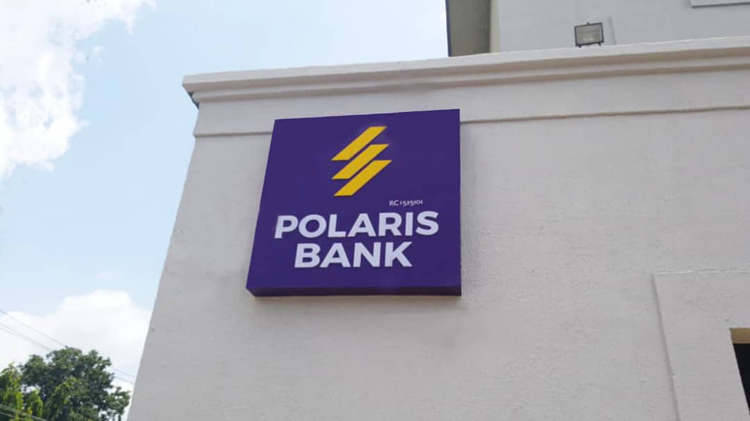CBN, AMCON announce sale of ’embattled’ Polaris Bank to SCIL

The Central Bank of Nigeria (CBN) and the Asset Management Corporation of Nigeria (AMCON) have formally announced the completion of a Share Purchase Agreement (SPA) for the acquisition of 100 percent of the equity in Polaris Bank by Strategic Capital Investment Limited (‘SCIL’).
This is even as the House of Representatives on Wednesday okayed the sale of Polaris Bank, noting that the acquisition followed laid down procedure and the relevant presidential approval.

A statement issued by the director, corporate communications department at the CBN, Osita Nwanisobi, on behalf of the CBN and AMCON, disclosed that SCIL had paid an upfront consideration of N50 billion to acquire 100 percent of the equity of Polaris Bank and had also accepted the terms of the agreement which include the full repayment of the sum of N1.305 trillion, being the consideration bonds injected.
According to the statement, “the CBN thus received an immediate return for the value it has created in Polaris Bank during the stabilisation period, as well as ensuring that all funds originally provided to support the intervention are recovered.
“The sale was coordinated by a Divestment Committee (the ‘Committee’) comprising representatives of the CBN and AMCON, and advised by legal and financial consultants. The Committee conducted a sale process by ‘private treaty’, as provided in section 34(5) of the AMCON Act to avoid negative speculations, retain value and preserve financial system stability.
“In the process, parties who had formally expressed an interest in acquiring Polaris Bank, subsequent to the CBN intervention in 2018, were invited to submit financial and technical proposals. Invitations to submit proposals were sent to 25 pre-qualified interested parties, out of which three parties eventually submitted final purchase proposals following technical evaluation.
“All submissions were subject to a rigorous transaction process from which SCIL emerged as the preferred bidder having presented the most comprehensive technical/financial purchase proposal as well as the highest rated growth plans for Polaris Bank,” the statement added.
Meanwhile, the CBN Governor, Mr. Godwin Emefiele, was quoted as saying that the sale of the bank “marks the completion of a landmark intervention in a strategic institution in the Nigerian banking sector by the CBN and AMCON.”
He commended the outgoing board and management for their vital role since the bridge bank was established; in stabilising the Bank’s operations, its balance sheet and implementing strong governance structures to address the issues that led to the intervention.
According to the Governor, the process has provided the CBN with an unprecedented opportunity to recover its intervention funds in full and promote financial stability and inclusive growth.
He wished SCIL well as they implement growth plans to build the bank from the strong foundations that have been established.”
It will be recalled that Polaris has been operating as a bridge bank since 2018 when the Central Bank of Nigeria intervened to revoke the licence of the former Skye Bank Plc and established Polaris Bank to assume its assets and certain liabilities.
As part of the CBN intervention, consideration bonds with a face value of N898 billion (future value of N1.305 trillion) was injected into the bridge bank through AMCON, to be repaid over a 25-year period. The Bank noted that the actions were taken to prevent the imminent collapse of the bank, enable its stabilisation and recovery, protect depositors’ fund, prevent job losses and preserve systemic financial stability.
Speaking on the acquisition on Wednesday, October 19, 2022, the chairman of the House of Representatives Ad-hoc Committee investigating the sale of Polaris Bank, Hon. Henry Nwawuba, said that the lawmakers during the scrutiny of various documents and extant regulatory process on the sale of the bank, discovered that there were evidences of substantial compliance with the process.
The sales of Polaris Bank, which started long ago, was being sealed one week after reports of Islamaphobia broke out against a staff of the bank and which, not even attempt of denial by management settled the Muslims.
Calls were made therefore for Muslim account owners to boycott the bank, following which they stormed the bank in droves and started to close down their various accounts in response to what they considered to be the bank’s for Islam and Muslims.









